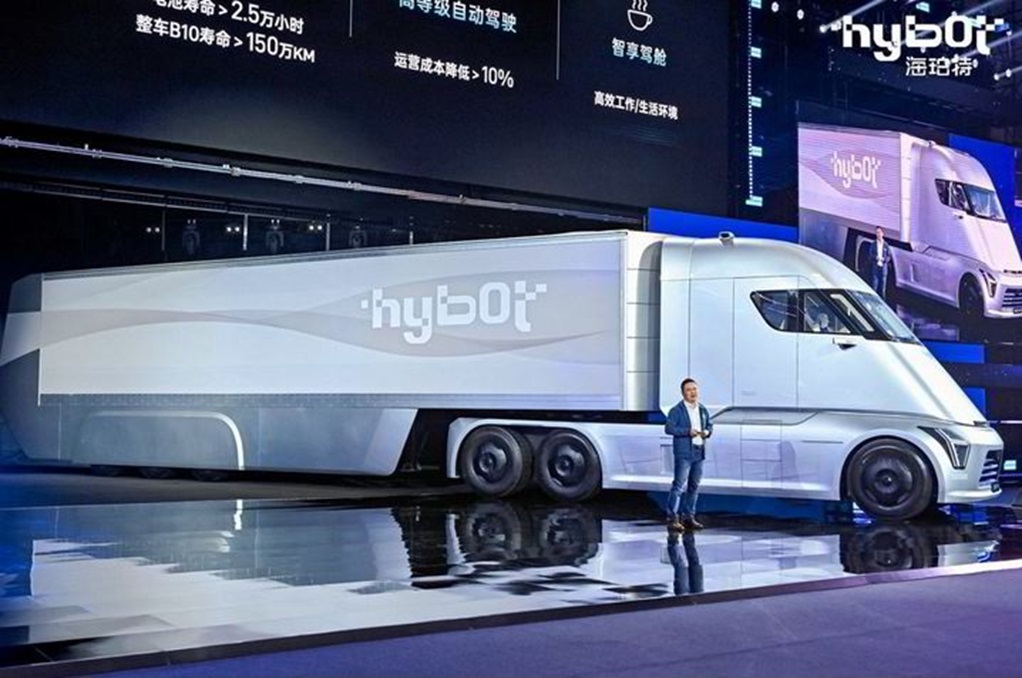A Chinese start-up has unveiled the world’s first gaseous-hydrogen-powered truck with a range of more than 1,000km.
Guangzhou-based Hybot says its H49 vehicle will only require 8kg of H2 per 100km when travelling at high speed with a full cargo load of 49 tonnes — partly due its low weight of less than nine tonnes, and partly due to a fuel cell that it claims is 20% more efficient than rivals’ technology.
Hydrogen fuel-cell trucks normally have a fuel consumption of 9-9.2kg per 100km — 12.5-15% higher than the H49 — according to the International Council on Clean Transportation.
Germany’s Daimler has also unveiled a truck that can travel further than 1,000km on a single tank, but that runs on cryogenic liquid hydrogen — which contains 50% more energy by volume than gaseous hydrogen at 700 bar, and is not dispensed at any public H2 filling station.
The H49 also has a secondary use for its fuel cell — the hot water generated as a by-product of electricity production is used in the shower room and sink at the back of the driver’s cab, a useful addition for long-distance journeys.
The vehicle is also equipped with “high-speed autonomous driving”, including automatic lane changing; the ability for problems to be diagnosed remotely; and software updates via the cloud — leading to comparisons with Tesla in the Chinese media.
Hydrogen trucks will be more expensive to own and operate than battery equivalents in Europe until at least 2040: report Hybot was jointly founded in December 2021 by Chinese investor Beijing Huaxia Shunze, conglomerate Guangdong Guangwu Holding Group and a hydrogen fund affiliated with the Beijing Tsinghua Industrial Development Research Institute.
Tags: Chinese, Hydrogen, Startup, Truck



Recent Posts
Scandlines Nears Delivery of Zero Emissions Ferry Following Successful Sea Trials
India faces emission roadblocks with rising net-zero demands
Green Energy Resources invests in two electric Liebherr LHM 550
NYK Launches Continuous Use of Bio LNG Fuel on Car Carriers to Advance Decarbonization Goals
Yang Ming Expands Fleet with Methanol and LNG Dual-Fuel Vessels Under Fleet Optimization Plan
ClassNK Advocates Speed Gap Monitoring to Optimize Fuel Efficiency in Heavy Weather
Wärtsilä’s retrofit package for the Corsica Linea ferry Pascal Paoli has resulted in fuel savings of up to 22 percent Corsica Linea
COSCO Shipping Names Second Methanol Dual-Fuel Containership in Yangzhou